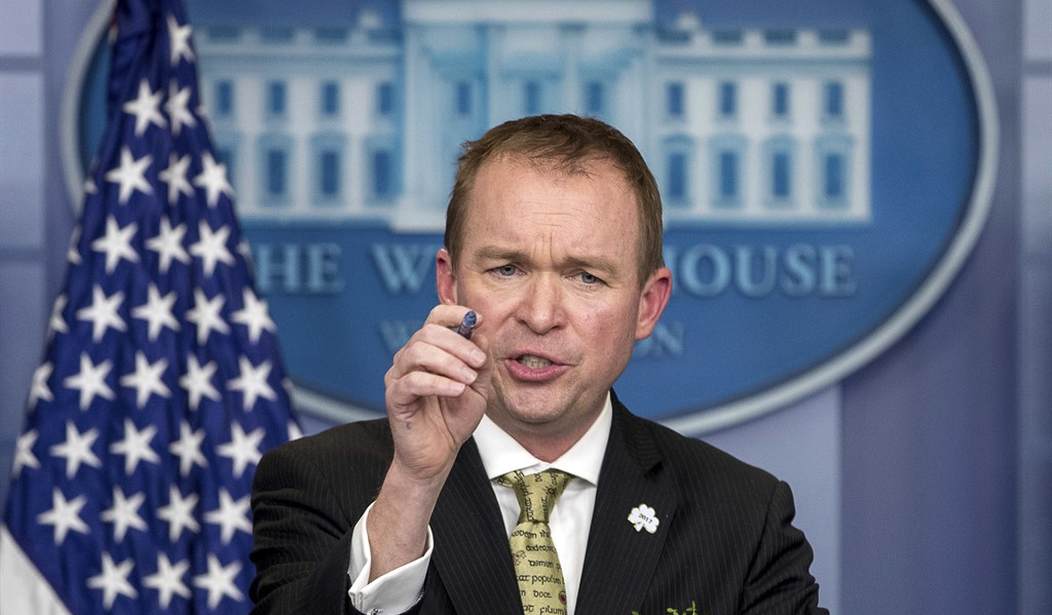Donald Trump wants to build his reputation as a promise keeper, and the new White House full budget proposal certainly accomplishes that. Trump directed Mick Mulvaney and the Office of Management and Budget to keep their hands off of Social Security and Medicare, and true to his word, Trump’s budget doesn’t touch those entitlement programs. That pushed OMB to make dramatic cuts in other safety-net programs, slicing nearly $4 trillion off of spending over the next ten years, and potentially setting up a dramatic showdown this fall in Congress:
The White House’s $4.094 trillion budget request for fiscal 2018 calls for cuts that hit Medicaid, food assistance and other anti-poverty programs. It would cut funding for the Children’s Health Insurance Program (CHIP), which provides benefits to the poor, by roughly 20 percent next year.
All told, the budget would reduce spending on safety-net programs by more than $1 trillion over 10 years.
Mick Mulvaney casts this as a return to the status quo ante of the Great Recession. The economic conditions of the crisis wiped out jobs and forced otherwise able workers into disability programs and food stamps. The Trump administration wants to tighten up the means testing for these programs considerably in order to encourage people to return to the workforce, but that’s predicated on creating jobs to absorb those workers. The pace of job creation hasn’t significantly changed in years, but the White House wants to bet on the impact of their tax reform package when Congress finally gets around to passing it.
Part of the reason for these dramatic cuts, though, is to play kick the can on entitlements for a little while longer:
In writing the budget, White House officials were forced to walk a tightrope.
Trump insisted that they could not cut retirement benefits for Social Security or health benefits for Medicare, two of the most expensive parts of the federal budget. White House officials also were committed to protecting military spending.
To preserve those items and eliminate the budget deficit over 10 years, officials had to deliver major cuts across the rest of the budget. The budget also relies heavily on assumptions that economic growth will soar under tax cuts and regulatory reductions that Trump has promised to deliver.
The real risk of deficits in the long run come from these entitlement programs. There is no avoiding the coming train wreck by reworking the appropriations side of the ledger. Discretionary spending less than half of the budget now, and it will get smaller and smaller until mandatory spending is restructured in a manner that balances out liabilities and revenue. We already borrow 40 cents on every dollar spent at the federal level in our attempts to avoid this choice, and that has created another new and massive need for mandatory spending just to keep up with interest payments.
Bear in mind that White House budget proposals are almost entirely political documents. Congress creates budgets, not presidents, although presidents have to sign them. These budgets get used to set the tone for the upcoming negotiations on Capitol Hill, and it seems clear that Trump and Mulvaney want to shift the Overton windows on discussions over safety-net programs. Trump’s brash enough to do that and make it work, or so he and Mulvaney believe. Eventually, they will need to show even more leadership and courage, and shift the Overton windows on Medicare and Social Security too — and make it plain that it’s going to cost Democrats in every other budget line item until they accept the need to reform entitlements. Perhaps this is step one in that process.








Join the conversation as a VIP Member